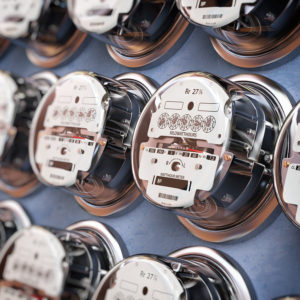At the Associated Grocers of New England, we serve hundreds of independent grocery stores throughout the region—stores that work every day to keep shelves stocked, prices fair, and doors open in the face of tight margins and rising costs. For us, one of the most unpredictable and burdensome costs is electricity.
That’s why we have joined with the Business and Industry Association of New Hampshire and other large employers to push for the right to generate our power. Together, we are urging state lawmakers to keep the language of Senate Bill 106 in the state budget—a bill that gives New Hampshire’s largest electricity users the ability to self-generate power onsite and finally take control of their energy costs. New England has some of the highest electricity rates in the nation, and this hampers our state’s economic competitiveness in the region. Without tools to control these energy costs, we face the very real choice between reinvesting in expanding our operations here in New Hampshire versus choosing to do so in a more hospitable neighboring state.
Right now, New Hampshire law arbitrarily caps the size of the net-metered solar energy projects that we can build on our rooftops at one megawatt for businesses, while municipalities can build up to five megawatts. This puts large energy users, like warehouses and manufacturing facilities, at a disadvantage, even when we have the space, the electrical load, and the desire to make these cost-saving investments. It’s an outdated restriction that blocks innovation and keeps energy prices higher than they need to be. Our own headquarters in Pembroke is a clear illustration of how policy impacts businesses on the ground: much of our facilities’ rooftop remains empty, when we have considerable additional onsite demand that we could serve.
Fortunately, allowing large energy consumers like Associated Grocers or those in the state’s growing advanced manufacturing industry to generate more of their own power reduces strain on the grid, lowers long-term energy demand, and builds a more resilient energy system. And it’s not just about saving money—it’s about making smart, forward-looking investments in New Hampshire’s economy, too. Predictable energy policy gives businesses the confidence to build for the future, hire more workers, and improve their facilities.
Some critics have raised concerns about potential cost-shifting to other ratepayers, citing costs in neighboring Maine as a reason to oppose keeping SB 106 in the budget. But these fears are not supported by the data: New Hampshire’s net metering program is completely different from Maine’s—and even more, large solar arrays are compensated here at a market-based rate which is currently less than half of what Maine does. Our state’s own analysis, the Value of Distributed Energy Resources report, found that New Hampshire’s net metering rates actually pay customers who generate electricity less than what the power generates in benefits to our state electric utilities, and that the value of local generation in fact offsets or exceeds the costs.
If New Hampshire wants to grow its economy and remain competitive, it must give businesses the tools to manage their energy expenses and SB106 does exactly that. SB 106 earned unanimous bipartisan support in the Senate and is backed by a broad coalition of businesses from across the state, including the Business and Industry Association of New Hampshire and more than two dozen manufacturers and energy-intensive businesses. We urge lawmakers to preserve SB 106 in the final version of the state budget—sending our business community a strong message that our state is serious about addressing energy costs and strengthening long-term economic competitiveness.





